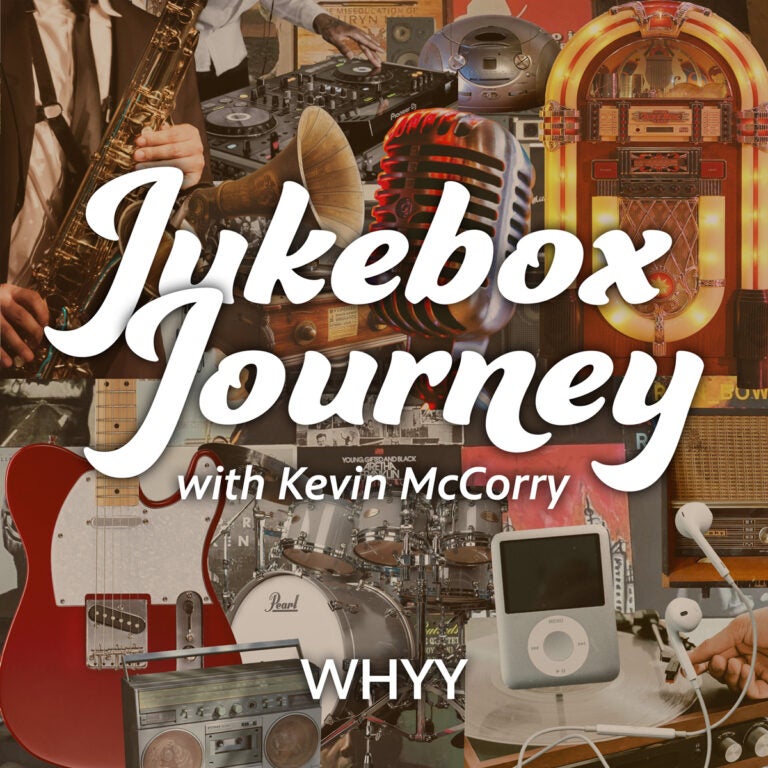KEVIN McCORRY, HOST: I’m Kevin McCorry and this is ‘Jukebox Journey.’
[MUSIC MONTAGE: “Happy Together” by The Turtles, “You Oughta Know” by Alanis Morisette, “Live Forever” by Oasis, “No Diggity” by Blackstreet.]
KM: We’re unstuck in time, jumping through decades and genres, meditating on a theme.
This week: Leaning into fall, but holding on to summer.
June, July and August are like Dionysus — the Greek god of wine and music. Lush, chaotic, overgrown gardens, and nights of plenty.
[MUSIC: “Riot” by Hugh Masekela]
KM: From 1969, Hugh Masekela.
September brings the order of Apollo, the god of reason and light. School supply lists, exercise regimens, corporate goals.
[MUSIC: “The Robots” by Kraftwerk]
KM: Kraftwerk from 1978.
From the chaotic and off-kilter to the structured and rational…19th Century German Philosopher Friedrich Nietzsche argues this pairing is symbiotic, a tension that advances human culture.
[MUSIC: “Love Me Do” by The Beatles]
KM: The Beatles are proof of concept. You need the grounding in the straightforward hits of the early ‘60s.
[MUSIC SWELL]
KM: Mixed with the more experimental stuff from the middle of the decade.
[MUSIC: “Tomorrow Never Knows” by The Beatles]
KM: To get to the breakthroughs that fuse the two and completely break the mold.
[MUSIC: “Strawberry Fields Forever” by The Beatles]
KM: In the Dionysus and Apollo dichotomy, there’re some artists that indexing hard towards one of the camps.
Swedish songwriter and producer Max Martin is famous for applying reason and logic to making pop. Count the syllables. Keep it simple. Give the people what they want.
[MUSIC MONTAGE: “Baby One More Time” by Britney Spears, “It’s Gonna Be Me” by N’SYNC, “Blinding Lights” by The Weeknd.]
KM: From Britney Spears to N’Sync to The Wknd and more, 27 Number one hits later: It’s a proven method.
On the other hand, take Tom Waits. He starts in a conventional singer/songwriter mode in the early 70s.
[MUSIC: “Ol’ ‘55” by Tom Waits]
KM: But then he follows the muse down whatever odd alley it chooses.
[MUSIC: “Way Down in the Hole” by Tom Waits, “Heartattack and Vine” by Tom Waits, “Goin’ Out West” by Tom Waits.]
KM: Nothing on the pop charts, but loads of loyal fans.
To Nietzsche’s point, it’s the musicians with firm footing in both camps who seem to leave the biggest mark on the culture.
[MUSIC: “Say My Name” by Destiny’s Child]
KM: Take Beyoncé from 1999 with Destiny’s Child:
[MUSIC SWELL]
KM: To her auteur work with 2016’s Lemonade.
[MUSIC: “Don’t hurt yourself” by Beyoncé]
KM: To a new plane in the 2020s where she can play in any genre and make it her own.
[MUSIC: “Texas Hold ‘Em” by Beyoncé]
KM: Then there’s Radiohead…. “Creep” from 1995.
[MUSIC: “Creep” by Radiohead]
KM: To reinvention with “Kid A” in 2000.
[MUSIC: “The National Anthem” by Radiohead]
KM: To holy breakthrough with In Rainbows in 2007.
[MUSIC: “Reckoner” by Radiohead]
KM: As seasons change in our lives, we too try to strike a balance — being rational and practical enough to find order and security, but free enough from inhibition to tap into instincts and propel creativity.
So, where does that leave us at the end of August? We know Apollo is waiting on the other side, but summer is not over yet.
[MUSIC: “One More Time” by Daft Punk]
KM: Daft Punk from 2001.
I’m Kevin McCorry and this has been a Jukebox Journey on WHYY.
collapse




